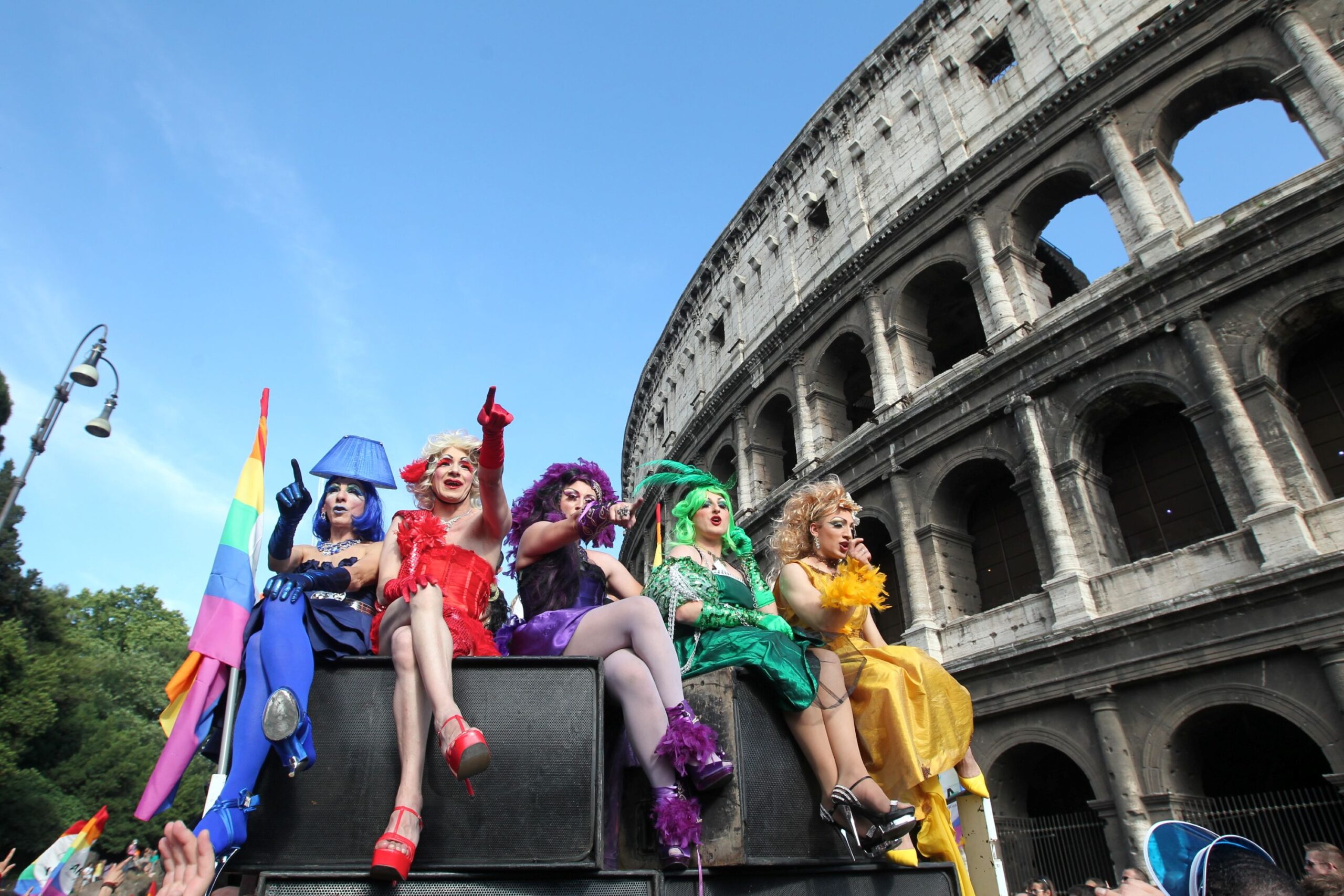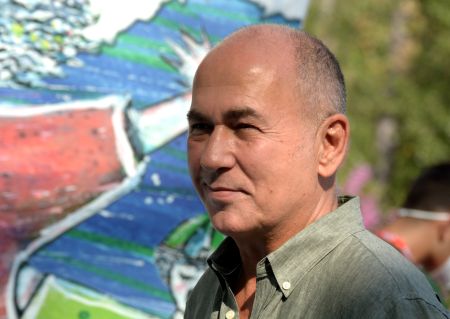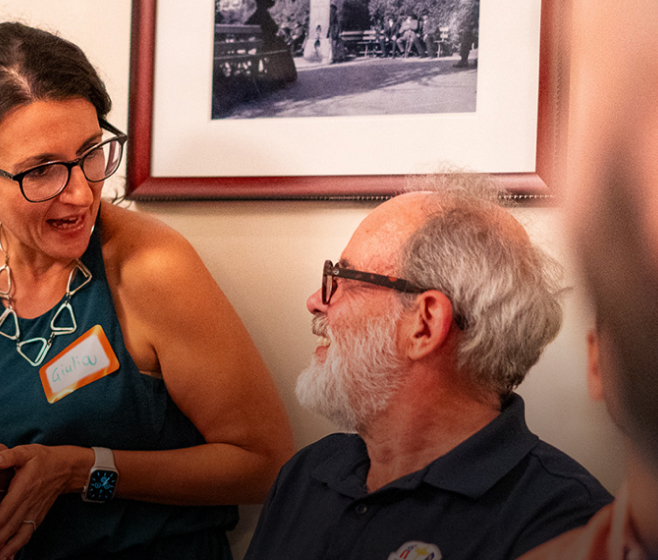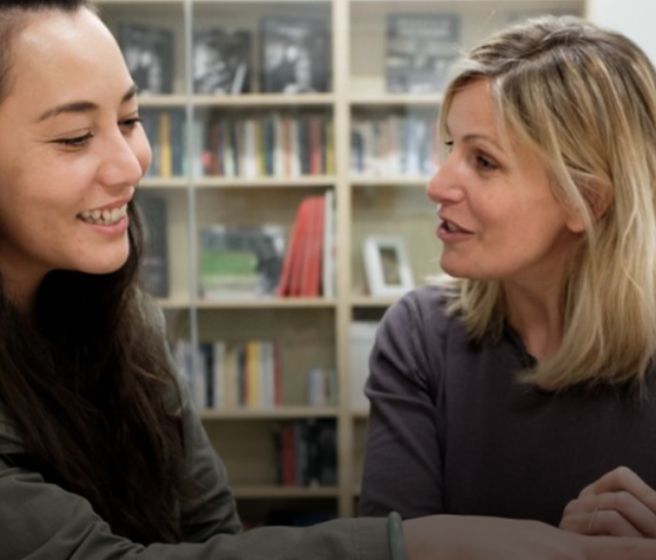
Italy beyond the closet: a cultural journey through queer Italian cinema
Explore with us the evolution of queer Italian cinema—from Visconti and Pasolini to Guadagnino and Tognazzi. Discover how LGBTQ+ stories reflect Italy’s cultural identity and inspire deeper understanding at Istituto Italiano Scuola.
Italian queer cinema: where identity meets culture
In a country steeped in Catholic tradition and tight-knit family values, queer Italian cinema has emerged as a powerful vehicle for cultural dialogue and change. From the subtle undertones of post-war films to today’s unapologetically queer narratives, Italy’s LGBTQ+ cinema reveals the soul of a society grappling with transformation.
At Istituto Italiano Scuola, we believe that language learning should be immersed in cultural exploration. That’s why we bring stories like these into the classroom—so our students don’t just learn Italian; they experience the diverse voices shaping modern Italy.
Post-War to the 1970s: quiet resistance and subtextual boldness
Italian cinema’s earliest queer moments were often coded, shaped by censorship and societal repression. Yet visionary directors made space for LGBTQ+ themes beneath the surface.
- Luchino Visconti’s Death in Venice (1971) offered a meditation on forbidden desire, beauty, and mortality, with homoerotic undertones that resonated deeply.
- Pier Paolo Pasolini, openly gay and radically political, challenged Italian norms in films like Teorema (1968), where sexuality becomes a force of social upheaval.
Pasolini’s tragic death in 1975 remains a stark reminder of the dangers queer individuals faced—and still face—in Italy.
The 1980s–90s: from subtext to visibility
As LGBTQ+ activism gained momentum, Italian filmmakers began telling more explicit stories.
- A Special Day (1977) by Ettore Scola subtly tackled homophobia and isolation under fascism.
- Ferzan Özpetek’s Steam: The Turkish Bath (1997) opened new conversations about identity, heritage, and queer awakening across cultures.
This era reflected Italy’s shifting social climate, mirroring the broader global reckoning with HIV/AIDS and the rise of queer visibility.

2000s to today: queer cinema comes of age
Modern Italian cinema has embraced diverse LGBTQ+ stories with increasing nuance and global recognition.
- Luca Guadagnino’s Call Me by Your Name (2017) brought queer Italian storytelling to international acclaim, blending sensuality, landscape, and emotional depth.
- Karole Di Tommaso’s Mamma + Mamma (2018) and Maria Sole Tognazzi’s Me, Myself and Her (2015) center female queer relationships and family narratives.
- Films like Plan B and The First Man explore fluid sexual identities and working-class queer perspectives, moving beyond middle-class or cosmopolitan stereotypes.
These films reflect a society grappling with tradition while reaching toward a more inclusive understanding of identity.
Regional, class, and gender perspectives: a unique Italian lens
What sets Italian queer cinema apart is its rootedness in regional culture and social class. From the conservative towns of Sicily to the progressive pockets of Milan, these stories are as diverse as Italy itself.
- Emma Dante’s Via Castellana Bandiera (2013) offers a rare look at lesbian life in Sicily.
- Gianni Amelio’s films explore working-class masculinity and sexual repression.
Meanwhile, filmmakers like Sebastiano Riso and Adele Tulli are expanding transgender representation, bringing depth and authenticity to a space long overlooked.

The role of Festivals: building community and visibility
Events like:
- Torino LGBTQ+ Film Festival (since 1986)
…create platforms for emerging and established voices, building bridges between Italian and global queer cinema. These festivals are also part of the cultural conversation we highlight in our advanced language and culture courses at IIS.
Italy in transition: contradictions and creative resilience
Despite progress, Italy still ranks behind many EU countries in LGBTQ+ rights. Filmmakers must often rely on independent funding or international co-productions to get queer projects made.
But this very tension—between repression and expression—fuels some of the most compelling art. It reflects an Italy that is complex, contradictory, and evolving.
Why this matters at Istituto Italiano Scuola
At Istituto Italiano Scuola, we believe understanding Italian culture includes recognizing the voices often left out of mainstream narratives. Through films, articles, and in-class discussions, we explore how Italy’s LGBTQ+ communities contribute to its contemporary identity.
Whether you’re a cinephile, an LGBTQ+ ally, or someone exploring Italian for the first time, engaging with queer Italian cinema offers a deeper, more inclusive understanding of the country.
Start Your Cultural Journey With Us
Want to learn Italian while discovering the voices that are reshaping Italy?
Join us at Istituto Italiano Scuola for classes that go beyond grammar—into the heart of Italian culture. Explore Our Courses and Enroll Today
(Cinema is one of the few places where we can still tell uncomfortable truths.)



